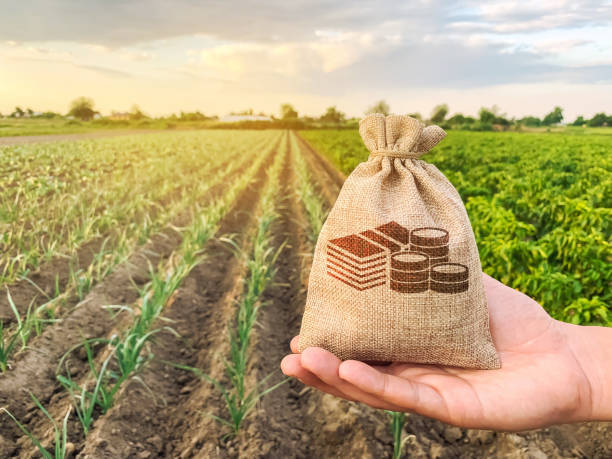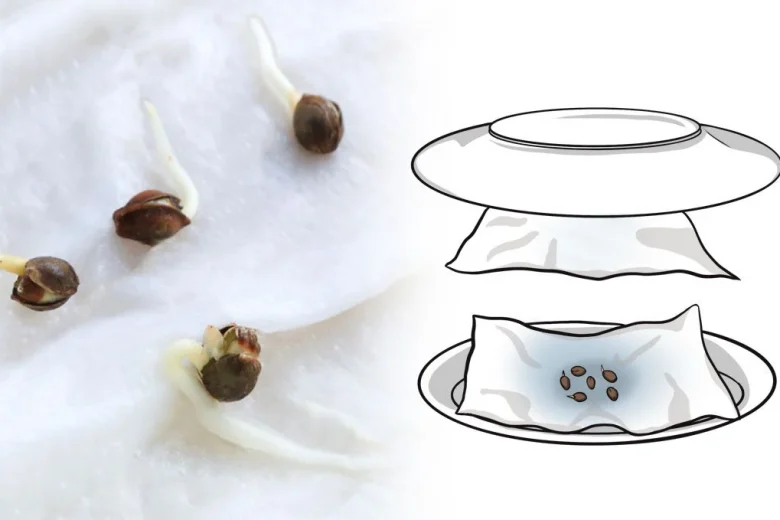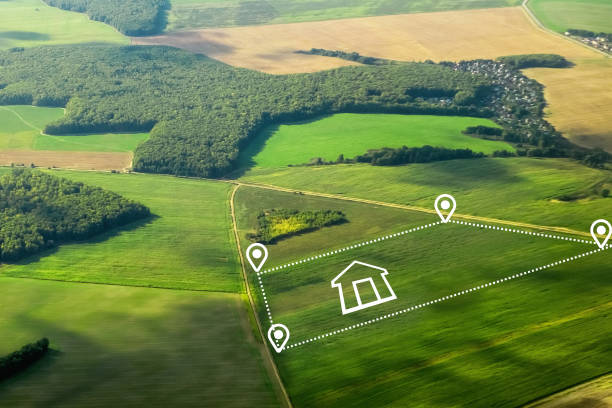The agricultural sector stands as one of humanity’s oldest and most foundational industries. Throughout history, alongside clothing and shelter, food has remained a fundamental necessity for human survival. It’s within this realm that the sale of agricultural products emerges as one of the most financially rewarding endeavors.
The demand for agricultural products such as maize, cassava, cocoa, rice, honey, and palm oil is consistently robust. Beyond their primary use as food staples, these commodities boast multifaceted applications across various industries, contributing to healthy daily living and economic vitality. Indeed, capitalizing on the sale of these products can yield substantial financial gains.
14 Best Agricultural Products To Sell That Can Make You A Fortune
For those looking to venture into the agricultural domain and capitalize on the sale of agricultural products, an array of lucrative opportunities awaits. Here, we present twelve of the best-selling agricultural commodities ripe for investment and trade, promising the potential to amass significant wealth:
Honey
Beyond its role as a natural sweetener, honey boasts a rich nutritional profile, containing antioxidants, vitamins, and minerals. Its versatility extends to various culinary applications, from sweetening beverages to enhancing the flavor of dishes. Moreover, honey’s medicinal properties and use in skincare products contribute to its enduring demand, making beekeeping a rewarding venture.
As a staple food in many regions, cassava provides a significant source of carbohydrates and essential nutrients. Its resilience to harsh growing conditions and ability to thrive in diverse climates make it a valuable crop for food security. Additionally, cassava’s role in industrial applications, such as biofuel production and starch extraction, adds to its economic importance, offering multiple avenues for profitability.
With its versatility and widespread cultivation, maize serves as a cornerstone of global agriculture. Beyond its role as a dietary staple, maize finds application in animal feed, ethanol production, and various food products. Its adaptability to different climates and soil conditions makes it a reliable crop for farmers worldwide, contributing to its continued popularity and market demand.
As one of the most widely used vegetable oils, palm oil plays a crucial role in the food, cosmetic, and biofuel industries. Its high yield per hectare and efficient production process make it a cost-effective source of vegetable oil. Moreover, palm oil’s rich composition of saturated and unsaturated fats, along with vitamins A and E, contributes to its nutritional value and versatility in culinary and non-food applications.
Soybeans serve as a primary source of protein and oil, with applications in food products, animal feed, and industrial uses. Investing in soybean cultivation offers the potential for substantial returns, given its diverse applications and market demand.
the surge in demand for seafood and agricultural produce, alongside the depletion of wild fish stocks, has spurred remarkable growth in fish farming, also known as aquaculture. This burgeoning industry offers investors a promising avenue for substantial profits while satisfying the escalating global appetite for fish products.
Fish farming has emerged as a viable solution to meet the soaring demand for seafood, which continues to outstrip the available supply from traditional fisheries. With wild fish populations facing depletion due to overfishing, pollution, and habitat destruction, aquaculture provides a sustainable alternative to replenish dwindling stocks and alleviate pressure on marine ecosystems.
Investing in fish farming presents a lucrative opportunity to capitalize on the expanding market for fish products, including fish fillets, shellfish, and other aquatic delicacies. As consumers increasingly prioritize health-conscious diets and sustainable food choices, the demand for high-quality, responsibly sourced seafood continues to grow, creating a favorable environment for aquaculture investments.
Moreover, fish farming offers several advantages over traditional fishing methods, including controlled breeding environments, optimized feeding practices, and disease prevention measures. By leveraging modern aquaculture technologies and best practices, fish farmers can maximize production efficiency, minimize environmental impacts, and ensure consistent product quality year-round.
Furthermore, fish farming enables investors to diversify their portfolios and mitigate risks associated with volatile commodity markets and unpredictable weather patterns. With proper planning, strategic investments, and adherence to regulatory standards, fish farming operations can yield substantial returns while contributing to food security, economic development, and environmental sustainability.
Renowned for their unique flavors and nutritional benefits, mushrooms have gained popularity as a culinary delicacy and functional food ingredient. Beyond their role in cuisine, mushrooms possess medicinal properties and are used in traditional medicine and pharmaceuticals. With advancements in mushroom cultivation techniques and growing consumer interest in healthy and sustainable food options, mushroom farming presents lucrative opportunities for entrepreneurs.
As the primary ingredient in chocolate production, cocoa holds a prominent place in the global confectionery industry. Its rich flavor, aromatic qualities, and nutritional benefits contribute to its widespread use in various food and beverage products. Additionally, cocoa’s applications in cosmetics and pharmaceuticals further enhance its economic value, making cocoa farming a lucrative venture in regions with suitable climate conditions.
Known as the world’s favorite caffeinated beverage, coffee enjoys widespread consumption and cultural significance across the globe. Its stimulating effects, coupled with its rich flavor profile and antioxidant properties, contribute to its enduring popularity. With coffee cultivation being a labor-intensive process that requires specific climate conditions, regions conducive to coffee farming stand to benefit economically from its cultivation and trade.
From enhancing culinary creations to providing therapeutic benefits, herbs and spices play a crucial role in cuisine and traditional medicine practices worldwide. Their aromatic flavors, medicinal properties, and culinary versatility contribute to their enduring demand in both domestic and international markets. Moreover, the growing interest in organic and natural ingredients further fuels the demand for high-quality herbs and spices, presenting opportunities for profitable cultivation and trade.
Beyond their aesthetic appeal, flowers serve various ecological, cultural, and economic functions. In addition to their role in beautifying landscapes and enhancing the ambiance of spaces, flowers contribute to ecosystem health by supporting pollinators and biodiversity. Furthermore, flowers find application in various industries, including floristry, horticulture, and cosmetics, adding to their economic value. With growing consumer demand for floral products and increasing interest in sustainable and locally sourced flowers, flower farming presents opportunities for entrepreneurs to capitalize on this thriving market.
As a dietary staple for a significant portion of the world’s population, rice holds immense cultural, nutritional, and economic significance. Its versatility in culinary applications, nutritional value, and long shelf life contribute to its widespread consumption and market demand. Additionally, rice cultivation plays a vital role in supporting livelihoods and ensuring food security in regions where it is grown, making it a valuable commodity for farmers and consumers alike.
With its high gluten content and versatile applications in baking and cooking, wheat ranks among the world’s most consumed grains. Its nutritional profile, culinary versatility, and ability to adapt to diverse growing conditions make it a staple food in many cultures. Furthermore, wheat’s role in global trade and its significance as a commodity in international markets contribute to its economic importance, presenting opportunities for wheat farmers to capitalize on its demand and profitability.
Despite being less recognized compared to other grains, millet offers numerous health benefits and culinary possibilities. Its gluten-free composition, rich nutritional profile, and drought-resistant qualities make it a valuable crop for food security and sustainable agriculture. Additionally, millet’s versatility in culinary applications, from porridge to baked goods, contributes to its growing popularity among health-conscious consumers. With increasing consumer awareness of millet’s nutritional benefits and its potential to address food security challenges, millet farming presents opportunities for entrepreneurs to tap into this emerging market and contribute to sustainable agricultural practices.
FAQs on the Best Agricultural Products To Sell That Can Make You A Fortune
What are the best agricultural products to sell for profit?
The best agricultural products to sell for profit depend on various factors such as market demand, local climate conditions, and personal preferences. However, some highly profitable options include high-value crops like organic vegetables, specialty fruits, herbs, and spices, as well as value-added products like honey, artisanal cheeses, and gourmet jams.
How can I determine the market demand for agricultural products?
Researching market demand for agricultural products involves analyzing consumer trends, identifying niche markets, and understanding the needs of potential customers. Conducting surveys, attending trade shows, and networking with industry professionals can provide valuable insights into current market demand and emerging opportunities.
Read Also: Richest Poultry Farmers In Uganda
What are the key factors to consider when selling agricultural products?
Several key factors influence the success of selling agricultural products, including product quality, pricing strategy, distribution channels, marketing efforts, and customer service. Additionally, factors such as regulatory compliance, supply chain management, and risk management should be carefully considered to ensure a successful venture.
How can I differentiate my agricultural products from competitors?
To differentiate your agricultural products from competitors, focus on unique selling points such as organic certification, sustainable farming practices, superior quality, innovative packaging, or exclusive varieties. Building a strong brand identity, cultivating relationships with customers, and offering exceptional value-added services can also set your products apart in the market.
What are the potential challenges and risks associated with selling agricultural products?
Selling agricultural products can pose various challenges and risks, including seasonal fluctuations, weather-related disruptions, pest and disease outbreaks, regulatory changes, market competition, and supply chain disruptions. Mitigating these risks requires careful planning, diversification strategies, contingency plans, and ongoing monitoring of market conditions.
Conclusion
In summary, the agricultural industry offers a vast array of opportunities for entrepreneurs to cultivate and sell agricultural products, ranging from staple crops to specialty items. By understanding the diverse applications, nutritional benefits, and market demand for these products, entrepreneurs can make informed decisions and capitalize on emerging trends to achieve success in the agricultural sector.





